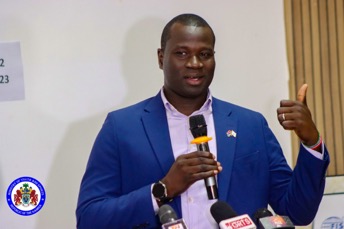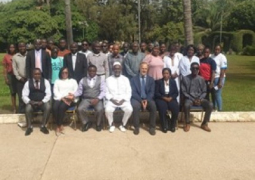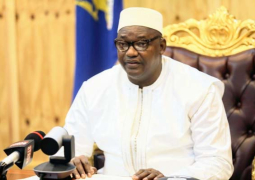
This policy, developed after extensive consultation with key stakeholders, marks a crucial step forward in the nation's sports history.
The new policy outlines the vision and aspirations of the Gambian sports community, building upon the successes and lessons learned from the previous National Sports Policy (2010-2019).
Recognizing the policy's pivotal role in shaping the country's sports landscape, the Ministry of Youth and Sports, in collaboration with stakeholders, initiated a comprehensive review to craft a forward-looking document that will guide the development of sports over the next decade.
In his opening remarks, Minister Badjie expressed his gratitude to the various stakeholders and sports veterans who contributed to the policy's development. He emphasised that the document reflects the collective will of the Gambian people, stating: "This is more than just a ministry document; it is a national document, essential for the development of the sports we all love."
He also acknowledged the efforts of the task force committee, established last year to oversee the policy's creation. Despite the involvement of an international consulting firm from South Africa, Gambian experts played a crucial role in guiding the process. Professor Momodou Mustapha Fanneh, through his consulting firm, worked alongside the Institute of Sports Development in South Africa, with input from representatives of various associations forming the technical group or task force. These individuals engaged in consultations across the country, gathering input from regional sports authorities and associations to ensure the policy reflects the needs and aspirations of the Gambian sports community.
Minister Badjie reiterated that the document was not solely the work of the ministry or the consulting individuals but was shaped by the contributions of Gambians from all walks of life. The final draft, now under review, will be submitted to the Cabinet for adoption, paving the way for its implementation as the official National Sports Policy.
Highlighting the importance of the new policy, Minister Badjie remarked, "Over the past years, the country has been working blindly without a guiding policy. This new document will replace the old one and set the path for what we all will be doing in the development of our sports."
The minister also underscored the timeliness of the policy, noting that it coincides with the completion of the first National Sports Act. Once the policy is adopted and the Act is passed by Parliament, they will provide a comprehensive framework for guiding sports development and regulation in The Gambia.
Minister Badjie thanked the Commonwealth for financing the policy and stressed the need for a paradigm shift in how sports are perceived and managed in the country. "We cannot continue to see sports as mere recreation. Sports is an industry in itself, with the power to lift people out of poverty, maintain peace in communities, and contribute to the country's economy," he said, citing the significant contributions of football and other sports to the national economy.
The Acting Executive Director of the National Sports Council Mr. Mahmoud L. Jawla, during a question-and-answer session, called for the establishment of an athlete award scheme to motivate athletes. He also echoed the minister's call for improved infrastructure and urged the government to offer tax breaks to institutions sponsoring sports, which would encourage greater investment in the sector.
Other speakers included the Permanent Secretary at the ministry of youth of sports, Hon Ndey Mary Njie and Professor Momodou Mustapha Fanneh.





